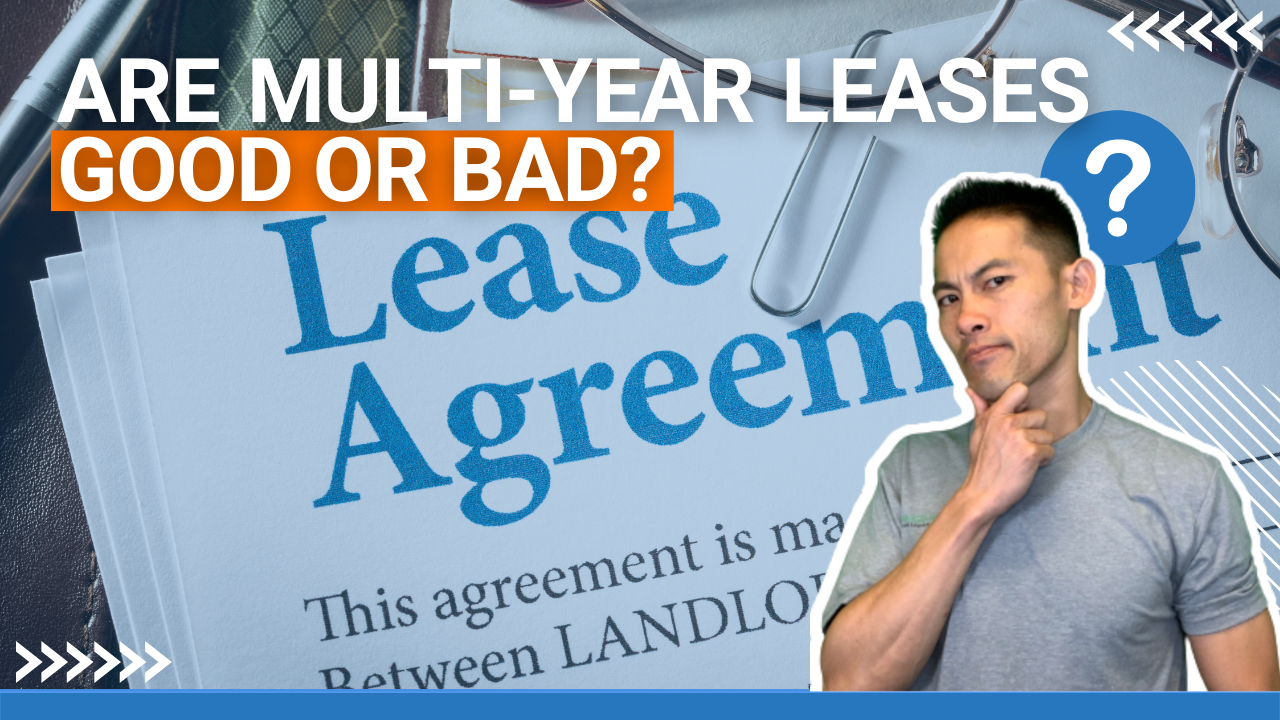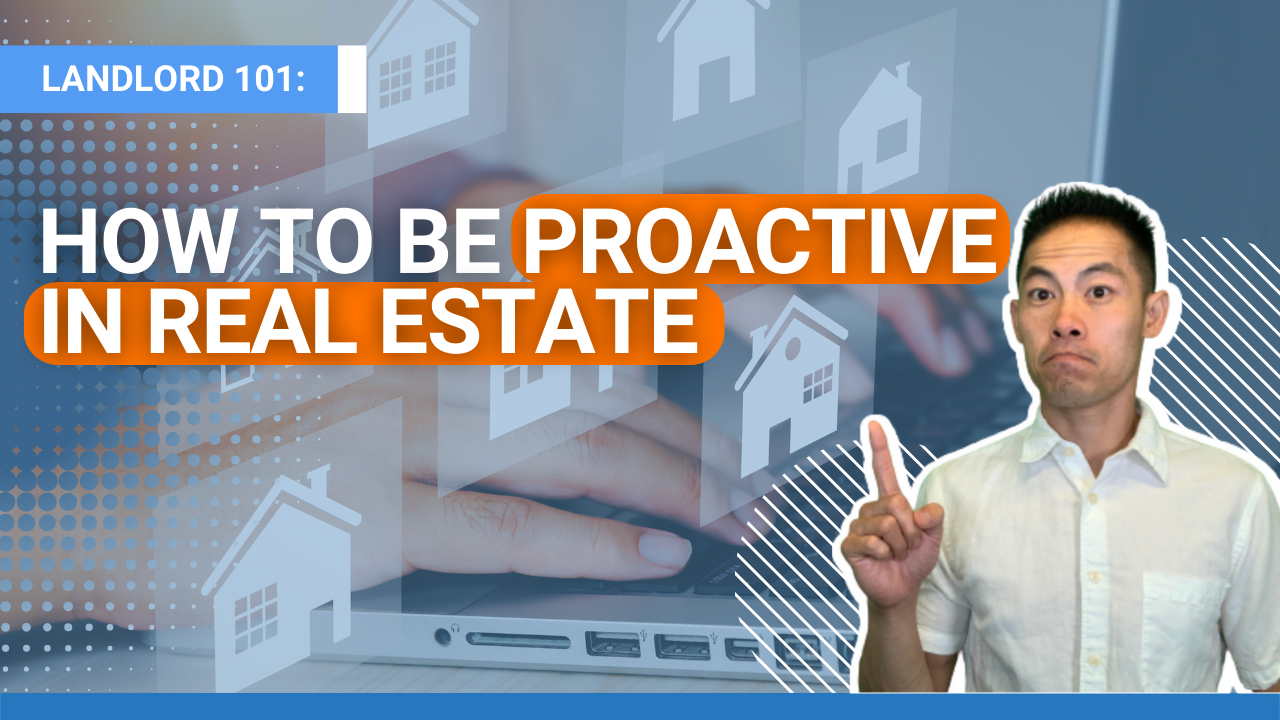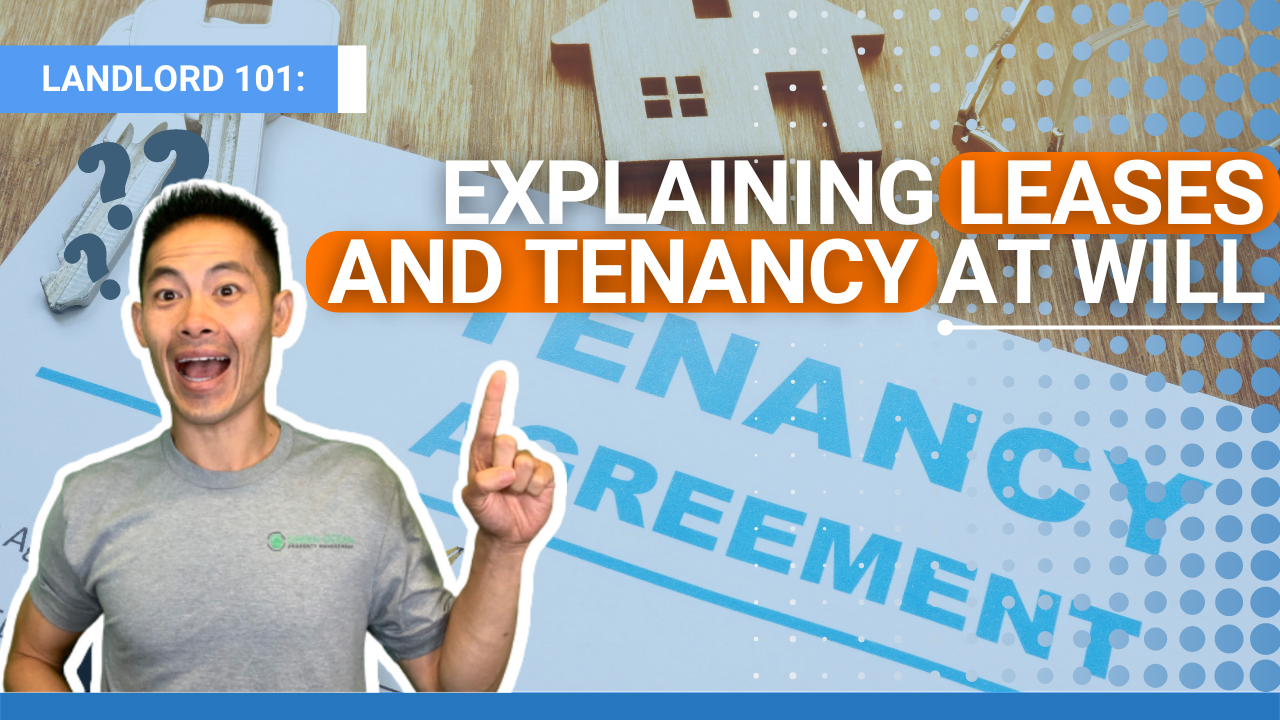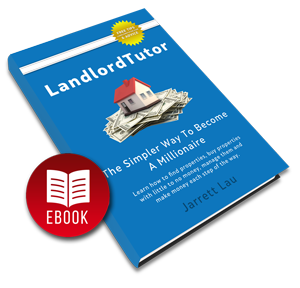
by J. Lau | Jul 29, 2022 | Maintenance & Capital Improvements, Renovations
Renovations are essential to every real estate investment, but don’t let the costs scare you. We share with you some thoughts on making your property more profitable, such as turning it into an appealing home with renovations.
Why Commit to Renovations
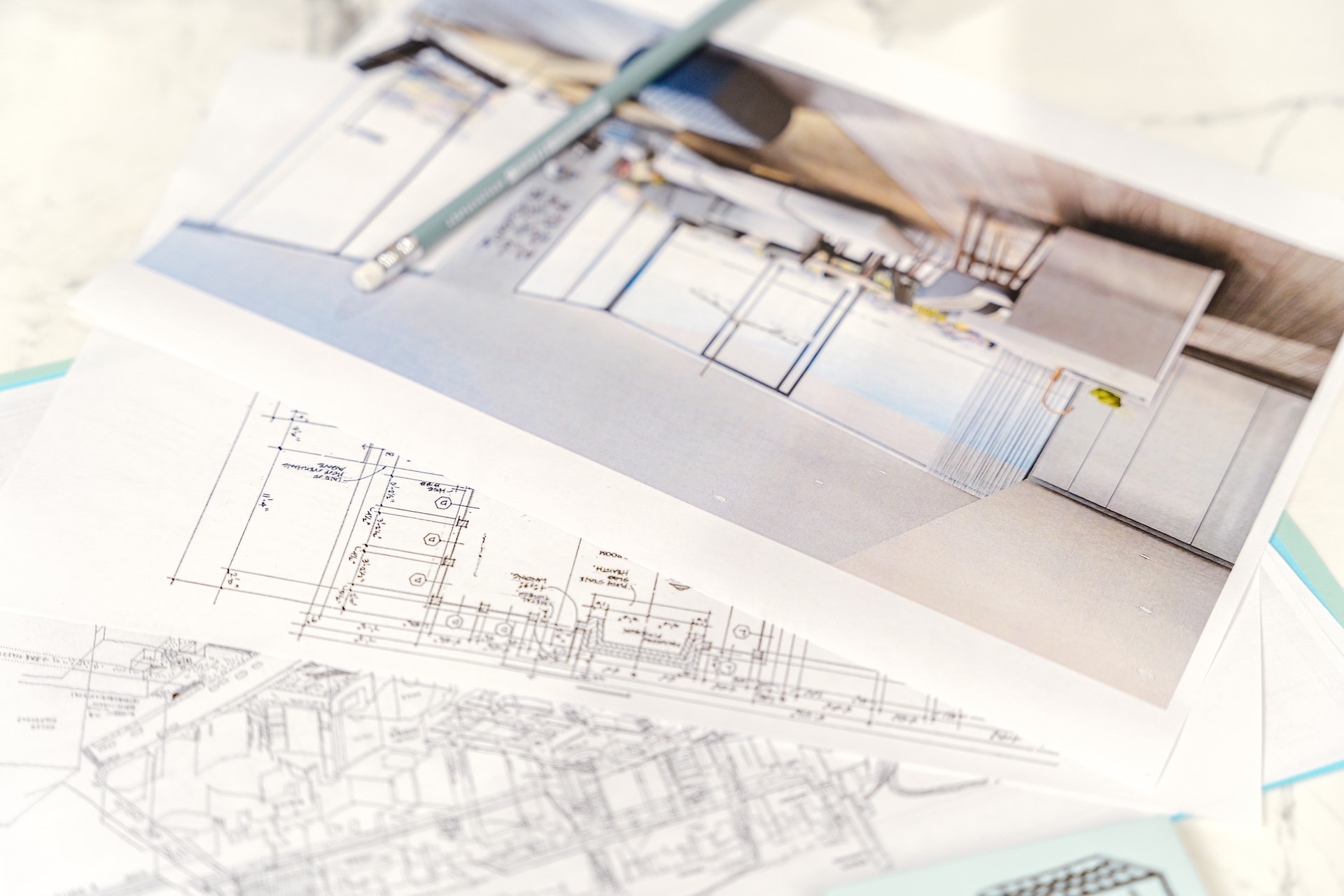
With every dollar that you put into your property, you want to make sure that you get a return on your investment. And we help you do that by walking through the property and determining what aspects would add value.
We focus on what would add value not only to you, the property owner but also through the tenants. Tenant value can be added through improvements to the property and making it more desirable.
By conducting renovations on your property, you make it more profitable by being able to increase the rent as well as the retention rate of your tenants.
If tenants are happy and they love the unit, they are going to want to stay, which means fewer turnover costs. And fewer turnover costs mean more money in your pocket.
How to Do Renovations Effectively
At the end of the day, we don’t want to go crazy with our renovations. We want to have a suitable taste that is desirable across the board.
Of course, trends change from year to year. What we can always guarantee, though, is that:
- Tenants love bright units, so we always make sure that the lighting is good.
- They also love keeping things looking clean, and the big trend right now is white cabinets, so we do that with lighter countertops as well.
- To match it all, we also guarantee stainless steel appliances.
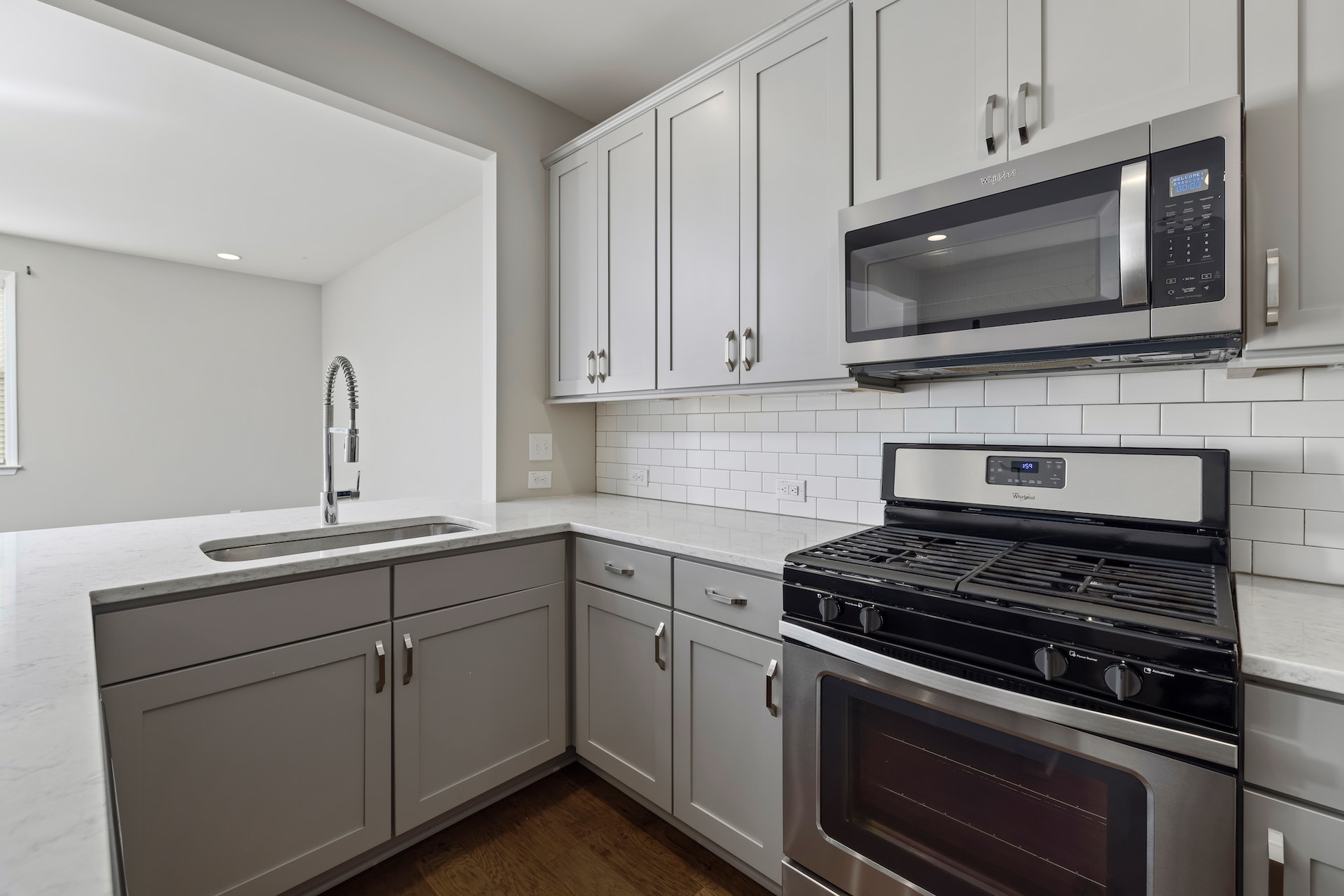
This is our proven strategy after going through the unit and determining what needs to be renovated or repaired. Sometimes, we are able to do a renovation in less than a week. We also save on costs by just repainting cabinets instead of replacing them.
With this, we minimize the actual turnover time and get tenants back into the unit paying rent.
Why Landlords Should Renovate
A lot of times, landlords don’t repair or make renovations or improvements. Slowly but surely, your properties will deteriorate, and they will become less desirable. This is not what you want.
And I’m not saying that you want it at the top of the market, but you want to be competitive and say that your units are nicer. If there are two equal-sized units for the same type of rent, you want to be the one tenants would choose.
You should determine what type of minor changes can make curb appeal improvements. You can also focus on things like the kitchen and the bathroom. These are two areas of your unit that tenants will focus on and base their decisions on.
And again, as we talked about with kitchens, the big things to consider are cabinets, countertops, appliances, and lighting. With bathrooms, it’s the same thing.
Tenants just want something clean and functional. They want to have space to put their goods, to make you feel like things aren’t cramped.
Ensuring a Profitable Property With Renovations
Once in a while, we will go through the layouts with you and change what is necessary. But most of the time, what we will do is update, improve, and determine what the market is demanding and what tenants are looking for.
We will always talk with you about that. We will give you a few different options to work from. Our trusted vendors and I will help ensure that you get the biggest return on investment on any improvement money spent.
As a general contractor myself, I have done hundreds of renovations not only for clients but also for my own properties,
The Landlord Tutor Promise
To know more about renovations and how you can make your property more profitable, join the Landlord Tutor community and sign up here.
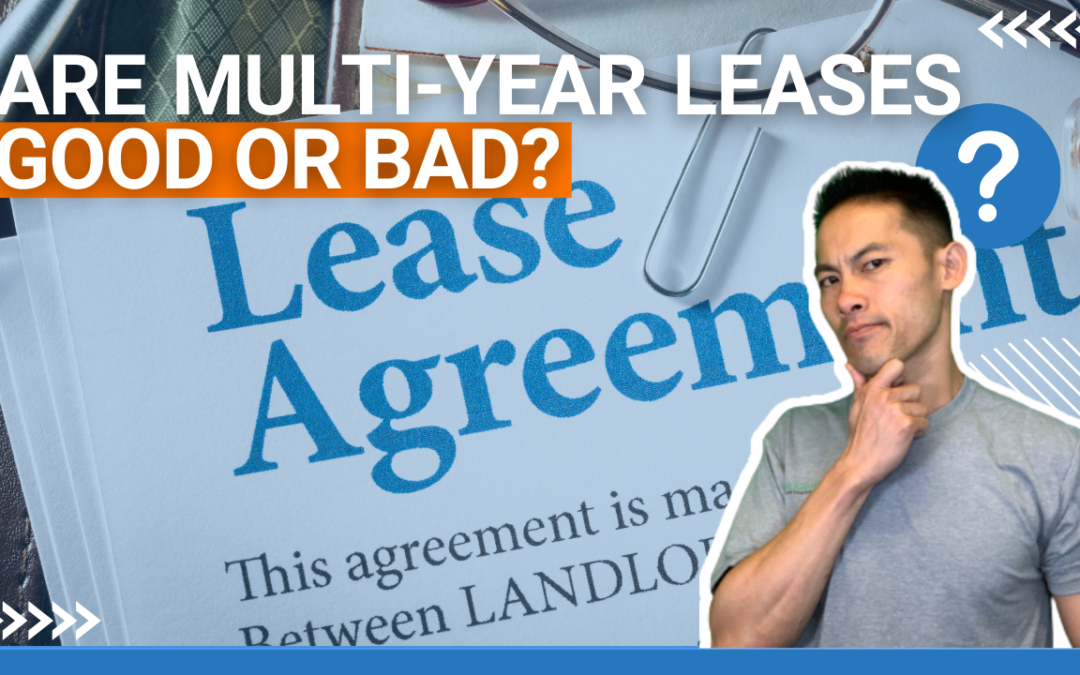
by J. Lau | Jul 27, 2022 | Being A Landlord, Documents And Paperwork
Multi-year leases are becoming more popular, but does that mean they’re better? Today’s article discusses the pros and cons of a multi-year lease so you can decide which is good or bad for your investment property.
What is a Lease?

A lease is an agreement between the landlord or the property manager and the tenant, stating the terms of the tenancy. One of the most important aspects of a lease is its duration.
There are annual leases and multi-year leases. In Massachusetts, we typically have annual or 12-month leases.
But we want to make sure that our leases will always end anywhere between June, July, August, or September. So sometimes, if you’re starting in the middle of the year, you might do a longer or a shorter-term lease to get it on that cycle.
What Makes Multi-Year Leases Good
There are a lot of landlords out there that love two or three-year leases because this allows them the stability to know that they have tenants for the long term.
They don’t have to worry about their renewals and worry about whether their property is going to go vacant. So if tenants have been good residents, we might offer them a multi-year lease.
Having a year-by-year lease allows us to reevaluate, usually at the beginning of the year, what your expenses were like for the previous year. From there, we determine if your expenses went up one or two percent, plus the inflation.
We might go up four or five percent to help you offset that and make you at least the same amount of money. Profits are important; as a landlord, you own property because it’s an investment you want to provide you with returns.
Generally, that’s a good idea to have security and stable profits, but let me tell you about the cons of having a long-term lease and why personally, I don’t do them as a property manager.
What Makes Multi-Year Leases Bad

When you have a tenant in there that might have a two or three-year lease, they start misbehaving. If they are bad tenants, it will be much harder for you to evict them, and you have to deal with them for the lease duration.
The second most important thing is the financial aspect. Many times, landlords do a two-year or three-year lease and keep rent at the same rate. Tenants love that; however, you have to remember that your expenses typically go up.
Your water, taxes, insurance—none of these ever go down for you. In addition, you always have to account for 3% of the inflation rate. All this will slowly eat your profits if you keep rents exactly the same.
The third aspect that makes multi-year leases bad is the fact that you can’t change the lease terms once the agreement is signed.
Sometimes, circumstance change in the lives of landlords as well as tenants. They might get a pet, or maybe you feel something different about a certain rule or regulation with a neighbor.
So you would want to change those lease terms, but a multi-year lease will not let you do that. With an annual lease at least, you can renew the terms with changes and improvements to better help and protect you.
The Landlord Tutor Promise
To know more about leases and ensure that you are protected while maximizing your profit, join the Landlord Tutor community and sign up here.

by J. Lau | Jul 25, 2022 | Advertising/Marketing, Documents And Paperwork
Your game plan for success in real estate starts with being proactive. In this article, I share how to stay ahead of the game by being a proactive landlord and property manager.
Common Setbacks in Real Estate
When things get bad in real estate, it can mean one of the following:
- Tenants trying not to pay rent
- An impending vacancy
- Property values going down
These are all significant concerns that can negatively affect a landlord or anyone that purchased or owns a property to make a profit.
But by being proactive, you will be able to get ahead of potential issues before they arise and turn a failed situation around.
How to be Proactive
The rest of my team and I spend a lot of time thinking about what could go wrong. We think about these issues and what we can do to avoid them before they happen in the first place.
Here are some ways to be proactive in real estate.
Anticipate vacancies with 3D tours
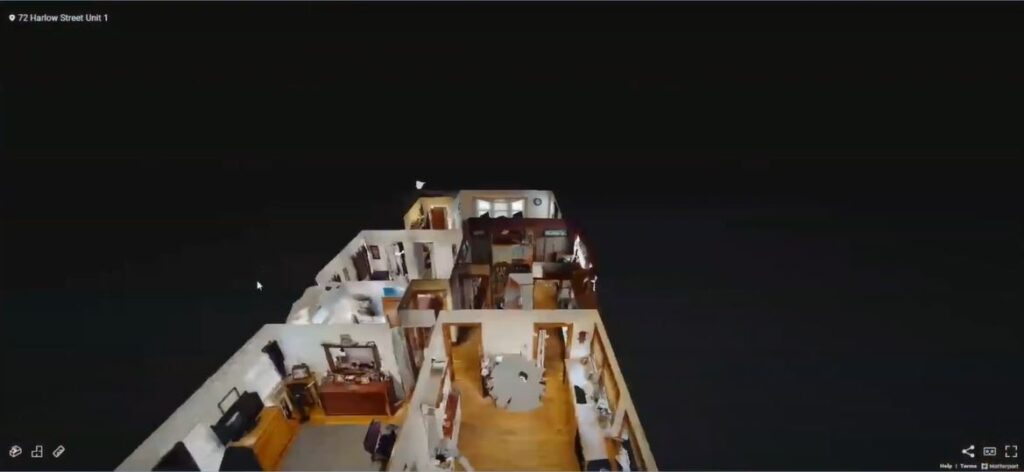
A screenshot of a 3D tour of one of our properties
We ensure that we have 3D tour videos of every property even before we market it. If a vacancy is coming up, the 3D tour must be finished and prepared.
With the 3D tour videos, we have proper marketing materials that we can also use to make online ads in advance.
It gives us the time to make sure that if and when your vacancy does come up, our team will automatically be ready to have good descriptions and 3D tours of the property. It’s ready to go and up for new tenants with no delay.
Opt for early renewals

Sending out a renewal notice ahead of time has countless benefits. But a major plus side is you can already secure your leases for a more extended period.
If you give renewal notices to your tenants too late, many of them might leave because they have probably found a new place by that time. So my team to send out renewal notices nine months in advance for your property.
No more of those days of 30 or 60 days that might leave you with less time to prepare.
The Landlord Tutor Promise
Being proactive means solving problems by avoiding them in the first place. To know more about being proactive to ensure maximum returns in real estate, join the Landlord Tutor community and sign up here.
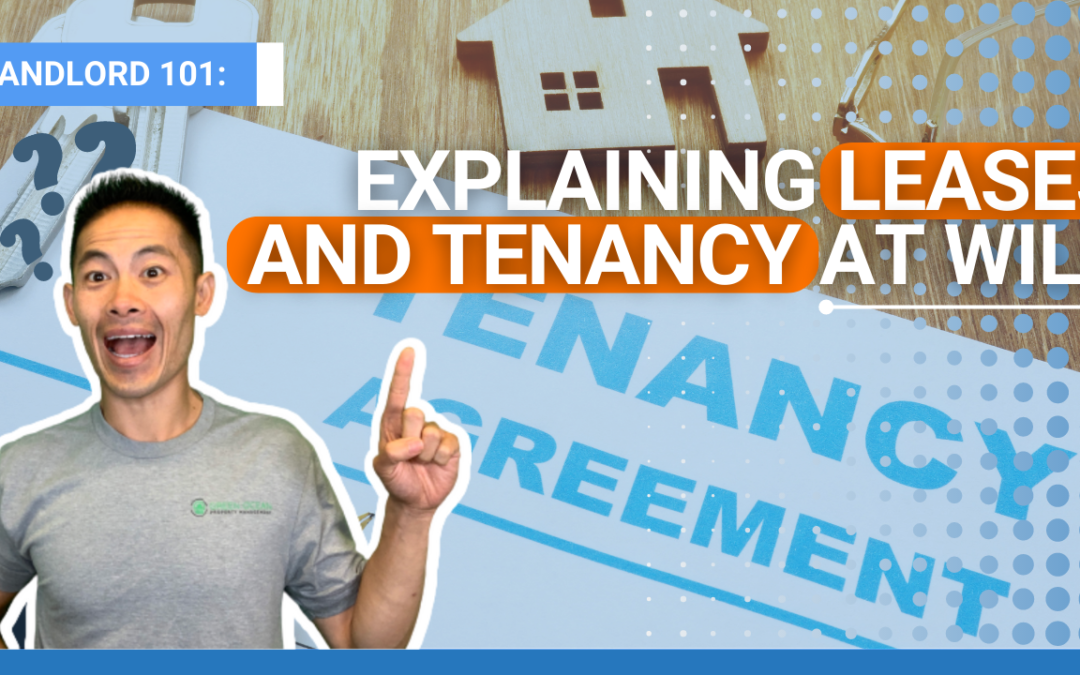
by J. Lau | Jul 22, 2022 | Tenant Issues, The Rental Process
Whether or not managing properties is new to you, you might have heard about leases (fixed term) and tenancy at will (month-to-month).
Learn the differences between these two forms of rental agreements, so you always know what’s best for your tenants and investment property.
Lease vs. Tenant-at-will

A lease is an agreement outlining the conditions of tenancy between a landlord and a tenant. stipulating the terms of tenancy.
This type of agreement usually lasts for a specific period. A typical lease is one-year with 12 monthly payments.
Tenancies at will are month-to-month agreements with no set length of time, as long as the tenant pays the rent.
The tenant can stay for 30 days and only has to give 30 days’ notice to leave. That notice to leave the property can also come from the landlord.
If the lease expires and the tenant does not leave but continues to pay the rent, it would automatically become a tenancy at will.
This is not an ideal situation for most landlords since there is no security of consistent income from the rent payments. But it happens.
The Pros and Cons of Leases and Tenancy at Will
It is typical and safe to do lease agreements. Leases mean a consistent amount of money coming in for a more extended period.
However, a tenancy at will has its merits in certain circumstances, such as:
1. When the property is newly acquired
If you acquire a new property and don’t know what the current tenants are like, it might be good to keep them at tenant at will for a while.
That way, it will be easier to issue a 30-day notice should you find them not the kind of tenant you want.
2. When you want to increase rent
Technically, increase your rent every single month if you give that notice. It’s very unlikely you get to do it with no complaints, but you do have the flexibility to increase rent without having to wait for several months.
3. When you want to renovate or sell
You might want a renovation or need to sell the property asap. With this, a tenant at will comes in handy because you can get a tenant out easier and faster rather than having them for a longer time if they are on a lease.
The Landlord Tutor Promise
To know more about which type of lease agreements are more beneficial for you, join the Landlord Tutor community and sign up here.

by J. Lau | Jul 20, 2022 | Safety
Smoke detectors are more than just beeping machines; they are life-saving devices that guarantee fire safety. We talk about two kinds of smoke detectors: ionization and photoelectric, and what is best to have in your home.
By code in Massachusetts, it is required to have smoke detectors in any home or property. Most houses also need to have carbon monoxide alarms. But for today’s blog, we focus on smoke detectors.
Ionization vs. Photoelectric
Smoke detectors have two main types: ionization and photoelectric. We look into their differences and relevance to fire safety.
What Is an Ionization Smoke Detector?
Ionization detects smoke from flaming fires faster. They will go off when you have a fire caused by flammable things such as cloth, wood, flammable liquids, and burning papers.
Ionization smoke detectors detect fires with a small amount of smoke and heat that is combustible. For this reason, it is more prone to false alarms. Especially if installed in the kitchen, even smoke from burnt toast can trigger it to go off.
What Is a Photoelectric Smoke Detector?
Photoelectric detects fires or smoke from smoldering fires. These are fires caused by things like candles or anything electric in nature.
Generally, false alarms are less likely to occur with photoelectric smoke detectors. A photoelectric detector works differently, as it detects light particles of fire. This includes burning embers and flaming ashes that ionization detectors won’t pick up on.
We recommended installing photoelectric smoke detectors close to the kitchen and bathrooms. This is because it can distinguish cooking fumes, shower steam, and actual fires better than its ionization counterpart.
Which Smoke Detector Is the Best?
It is best to have smoke detectors of both types in different appropriate locations on your property. Ionization and photoelectric respond faster to different types of fires, so you cover more bases by having both.
For maximum safety and less cost, you can also choose the dual-type ones with sensors for both types. It is unpredictable which type of fire may occur, so having both types guarantee more protection.
The Landlord Tutor Promise
To know more about smoke detectors and fire safety, join the Landlord Tutor community and sign up here.






